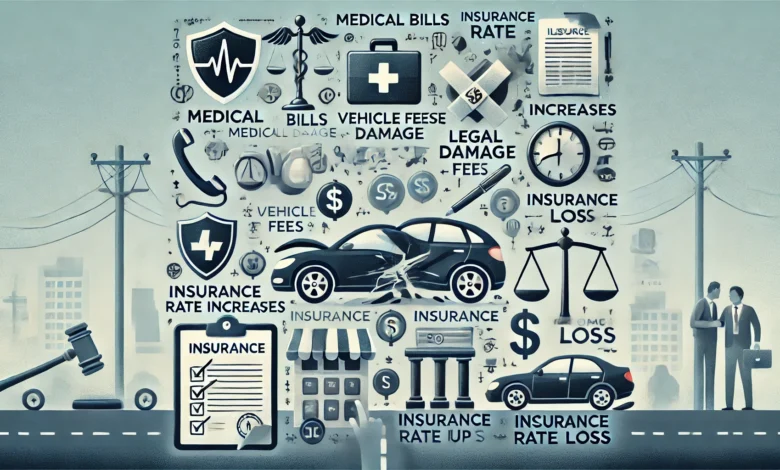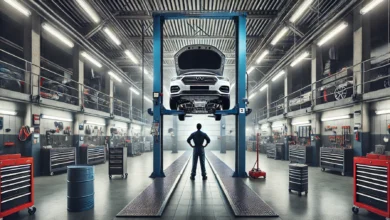Which Consequence of a Crash is the Most Expensive? Uncover the Costs and Prevention Tips

Crashes can have a variety of consequences, but which one carries the heaviest financial burden? Determining which consequence of a crash is the most expensive isn’t straightforward, as different factors like severity, location, and vehicle type play a significant role. Let’s dive deep into each potential consequence and examine the hidden costs that often come as a surprise.
Medical Costs: The Costliest Consequence?
One of the first concerns after a crash is medical attention. Injuries resulting from car accidents can lead to substantial expenses, ranging from emergency care to long-term rehabilitation. Immediate costs may include ambulance rides, hospital stays, and surgeries. But what often becomes more financially draining are the long-term consequences, such as physical therapy, medication, and potential permanent disability care. In severe cases, these ongoing medical bills can add up to hundreds of thousands of dollars.
For instance, the average cost of hospitalization from a car accident can easily exceed $50,000, while more critical injuries, like traumatic brain injuries, might lead to millions in lifetime costs. These expenses not only impact the injured party but also affect insurance premiums and legal settlements.
Vehicle Repair or Replacement
Another common consequence of a crash is vehicle damage. While some accidents result in minor fender benders, others lead to total losses, requiring complete replacement of the vehicle. Repair costs can vary widely, depending on the make and model of the vehicle and the extent of damage.
For luxury or modern vehicles with complex electronics and specialized parts, repair costs can skyrocket. Even seemingly small damages to bumpers, fenders, or windshields can reach thousands of dollars, especially if the car’s safety systems or advanced driver-assistance features are affected. When pondering “which consequence of a crash is the most expensive?” the combination of medical and vehicle-related expenses
Legal and Administrative Fees
Crash-related legal costs can be a significant financial burden. If there is a dispute over fault, involvement of lawyers, court proceedings, and administrative fees can quickly add up. This is especially true in cases involving personal injury claims, where the litigation process can be lengthy and expensive.
Settlements or judgments for compensation in these legal battles can be in the range of tens of thousands to millions of dollars, particularly if there are severe injuries or multiple parties involved. These costs also encompass court fees, legal representation, and any fines or penalties imposed due to traffic violations.
Insurance Premium Increases
One of the more hidden yet impactful consequences of a crash is the rise in insurance premiums. After an accident, even if it’s a minor one, insurance companies often increase the policyholder’s premium to account for the perceived higher risk. In some cases, rates may double, adding up to thousands more dollars over several years.
It is important to understand that the financial impact of increased premiums can last for many years. So, when asking “which consequence of a crash is the most expensive?” one might not immediately think of rising insurance costs, but these can become one of the most enduring financial effects of an accident.
Loss of Income and Productivity
For those injured in a crash, one of the most significant long-term financial consequences is the potential loss of income. Serious injuries may require time off work, leading to reduced earnings or even job loss. Additionally, if the injuries result in permanent disability, the individual might face reduced earni
The economic loss is not just limited to the injured party. If the person involved in the crash is a business owner or holds a key position, the productivity and profits of their company may also be affected. This loss of productivity can sometimes exceed direct medical costs, making it a major financial consequence.
Emotional and Mental Health Costs
While not always quantifiable in dollars, the emotional and psychological impact of a crash can be devastating and lead to indirect financial consequences. Mental health treatments, therapy, and medications required to manage conditions like post-traumatic stress disorder (PTSD), anxiety, and depression can add to the total cost of a crash’s aftermath.
Comparative Cost Analysis: Which Is Truly the Most Expensive?
When trying to determine “which consequence of a crash is the most expensive?” it is crucial to look at the interplay of all these factors. While medical costs often present the highest immediate expenses, the long-term financial drain from legal fees, loss of income, and increased insurance premiums can rival or even surpass medical bills over time.
For example, a crash that leaves a person with a permanent disability may incur substantial ongoing medical expenses, loss of earning potential, and higher insurance rates. The overall cost can reach millions over a lifetime, with no single consequence standing out as the sole “most expensive” factor—each one contributes to the total financial burden.
Preventive Measures to Avoid Crashes
Given the heavy financial burden crashes can impose, it’s wise to take preventive steps to minimize the risk. Here are some practical tips:
- Stay Attentive on the Road: Avoid distractions such as cell phones, eating, or adjusting car settings while driving. Keeping full attention on the road can help prevent accidents.
- Follow Traffic Rules: Adhering to speed limits, using signals, and respecting other traffic regulations can significantly reduce the likelihood of a crash.
- Regular Vehicle Maintenance: Regularly servicing your car ensures that brakes, tires, and other critical components are functioning properly, which can prevent accidents caused by mechanical failure.
- Invest in Defensive Driving Courses: Taking a defensive driving course can sharpen your skills and prepare you to handle unexpected situations on the road, potentially preventing accidents.
- Use Safety Equipment: Always use seat belts, and for families, ensure children are properly restrained in car seats or boosters according to their age and size.
In conclusion, the most expensive consequence of a crash is often determined by the specific circumstances of the incident, with medical costs, legal fees, insurance rate hikes, and loss of income being the major contributors. Taking preventive measures can not only save lives but also significantly reduce the financial impact associated with car crashes.










